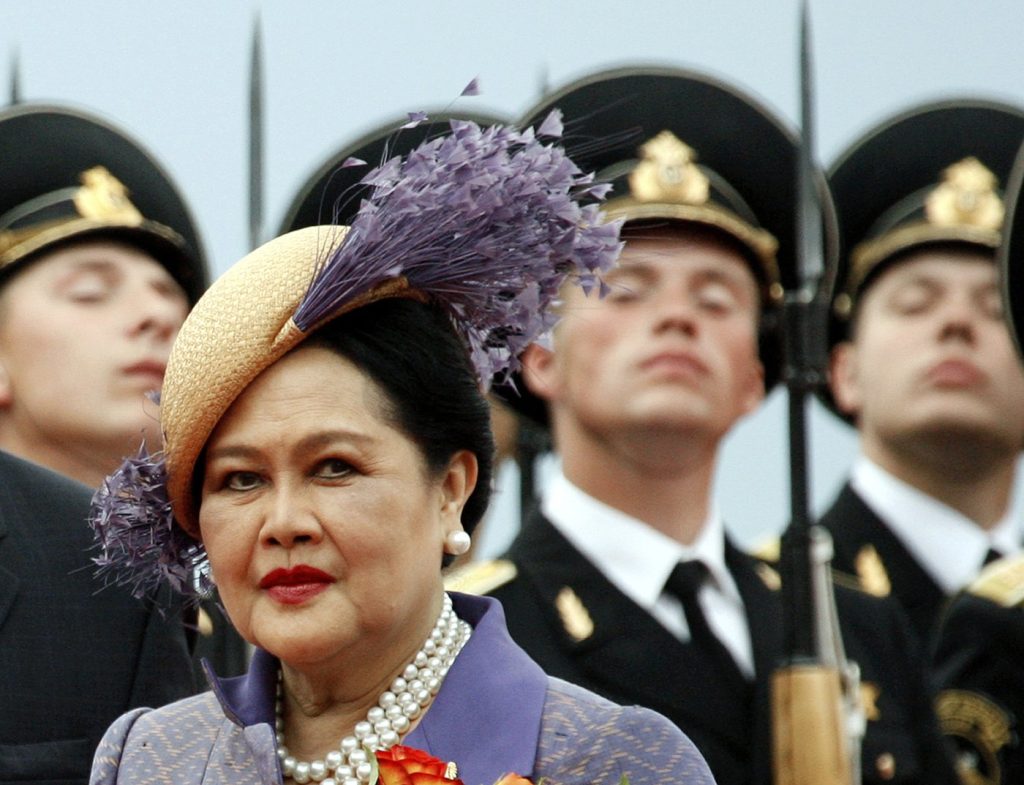BANGKOK (AP) - Queen Mother Sirikit of Thailand, a prominent figure known for her royal projects aimed at assisting the rural poor, preserving traditional crafts, and protecting the environment, passed away on Friday at the age of 93. The Royal Household Bureau announced her death, stating that she had been suffering from a blood infection since October 17, and despite medical efforts, her health did not improve. Queen Sirikit had been largely absent from public life since suffering a stroke in 2012. Her husband, King Bhumibol Adulyadej, died in October 2016.
The Royal Household Bureau confirmed that King Maha Vajiralongkorn had ordered her funeral to be conducted with the highest honors and instructed the royal family and royal servants to observe a period of mourning lasting one year. Following the announcement of her passing, mourners gathered outside Chulalongkorn Hospital in Bangkok to pay their respects.
67-year-old Maneerat Laowalert expressed the sentiment of many, saying, “It is yet again another great loss for the whole nation. I heard about it at 4 a.m. I felt like fainting. The whole world seemed like it had stopped.” Prime Minister Anutin Charnvirakul also remarked on the significance of Sirikit’s passing, calling it a “great loss for the country.” In her memory, the national flag will be flown at half-staff at all government agencies for 30 days, and civil servants are expected to mourn for one year.
Though often overshadowed by her late husband and her son, the current king, Sirikit was beloved and wielded considerable influence in her own right. Her portrait adorned homes, offices, and public spaces throughout Thailand, and her birthday on August 12 was honored as Mother's Day. Sirikit’s activities included aiding Cambodian refugees and working to save Thailand’s once-abundant forests from destruction.
The Thai monarchy has traditionally refrained from overt political involvement; however, in recent decades characterized by political turmoil, including two military coups and violent protests, speculation about Sirikit’s views and influence increased. Her attendance at the 2008 funeral of a protester killed during clashes with police was viewed by many as a sign of her siding with the political opposition.
Queen Sirikit, born on August 12, 1932, into a wealthy aristocratic family in Bangkok, met King Bhumibol Adulyadej while studying in Paris at the age of 16. Their relationship blossomed after the king's near-fatal car accident, and they married in 1950, vowing to “reign with righteousness for the benefit and happiness of the Siamese (Thai) people.” They had four children: King Maha Vajiralongkorn and princesses Ubolratana, Sirindhorn, and Chulabhorn.
Initially, the couple served as goodwill ambassadors around the world, forging ties with international leaders, but by the early 1970s, they shifted their focus to pressing domestic issues, including rural poverty and opium addiction in hill tribes. Sirikit, known for her remarkable fashion sense and commitment to social issues, became an approachable figure. Villagers often referred to her as “daughter,” and she took direct action on a range of community issues, from personal disputes to severe health problems.
Despite whispers about her lavish lifestyle and involvement in palace intrigue, Sirikit maintained widespread popularity in rural areas. She recognized the disconnect felt by those in the countryside towards the urban elite and attempted to bridge that gap through royal development projects initiated under her guidance.
In 1976, she established a foundation dedicated to promoting Thai traditional crafts, providing training in areas such as silk weaving, jewelry making, painting, and ceramics. Additionally, she spearheaded wildlife breeding programs and initiatives aimed at preserving natural resources, including the Forest Loves Water and Little House in the Forest projects. Sirikit believed that the monarchy played an essential role in the nation, stating in a 1979 interview, “There are some in the universities who think the monarchy is obsolete. But I think Thailand needs an understanding monarch.”
Throughout her life, Queen Sirikit endeavored to maintain the relevance and respect of the Thai monarchy while actively engaging in social issues that benefited the populace and preserved the nation’s environment.












